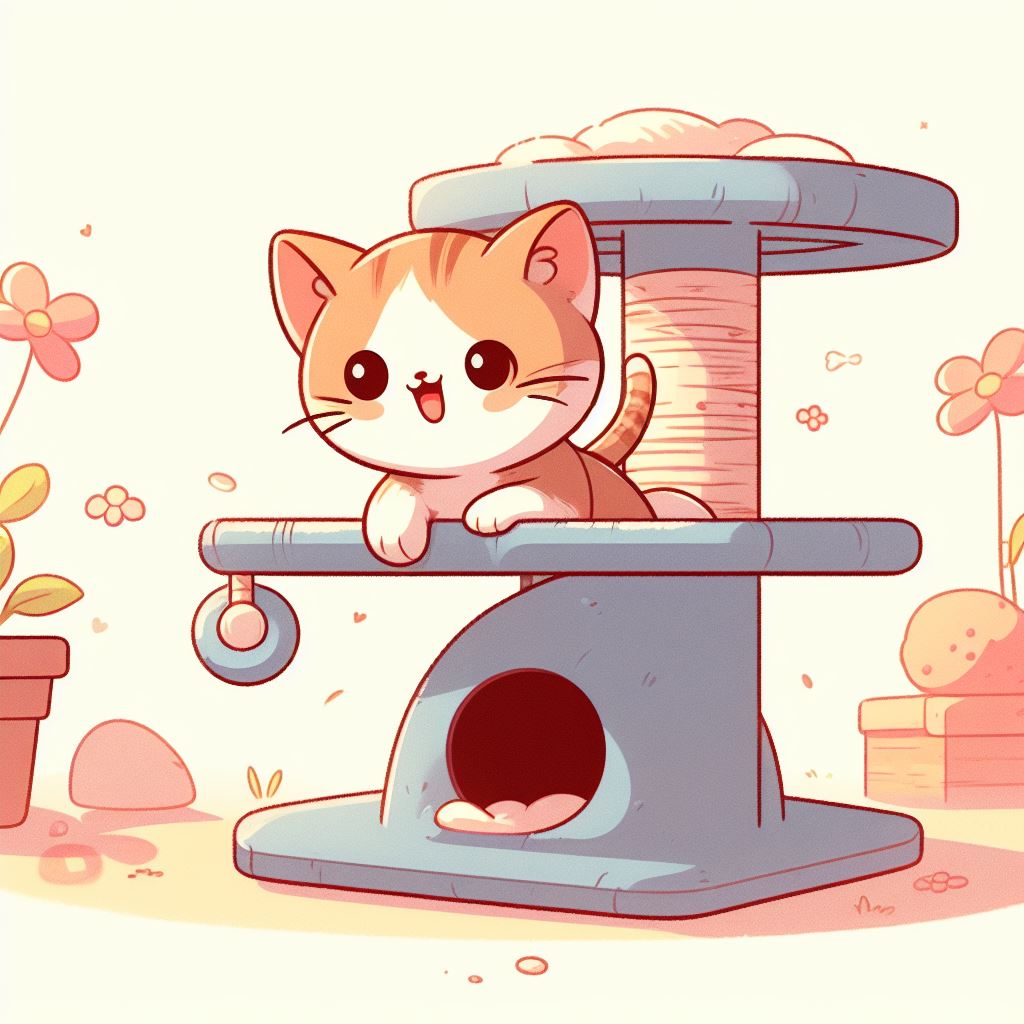Getting your kitty moving provides some powerful benefits for their physical and mental health. Regular activity helps manage weight, strengthen joints and muscles, and prevent obesity-related diseases. It also satisfies your cat's natural instincts to hunt, run, climb, pounce and more that would be exercised in the wild.

Mental stimulation from play prevents boredom and resulting behaviour issues too. Their brains need activity just like their bodies!
A sweet mix of active playtime with you, solo play with engaging toys when you're gone, and opportunities for free exploration and enrichment in cat towers, tunnels, window perches are just what's needed. Interactive play allows bonding, while solo play prevents boredom. Exposure to new sights, textures and scents also provides mental stimulation.
Get to know your feline's preferences - some prefer solo play while others love interactive toys. As long as you're providing enriching activities tailored to your cat, they'll get all the benefits from their exercise time each day.
Why Exercise is Important for Cats:
When it comes to our feline friends, you might picture them lounging gracefully, occasionally chasing a sunbeam. While that's true to an extent, exercise plays a pivotal role in your cat's life. Here's why it's so important:
Physical Health Benefits:
-
Weight Management: Just like humans, cats can pack on the pounds, and extra weight can lead to various health issues. Regular exercise helps keep your cat at a healthy weight, reducing the risk of obesity.
- Joint Health: Active play keeps your cat's joints supple and can alleviate stiffness, especially in older cats.

Mental Stimulation and Enrichment:
- Cats are intelligent creatures, and they need mental stimulation. Regular exercise challenges their brains, preventing boredom and related destructive behaviours.
Outlet for Natural Instincts:
-
Hunting Instinct: Cats are natural predators. Playtime mimics the thrill of the hunt, which is essential for their mental and emotional well-being.
- Scratching Instinct: Playtime provides a healthy outlet for your cat's scratching instinct, saving your furniture from their claws.
Recommended Duration of Daily Exercise:
30-60 minutes of Activity Per Day:
- A good rule of thumb is to aim for at least half an hour of active play daily. However, some cats might need more, while others are content with less.
Kittens and Senior Cats Need More or Less:
-
Kittens are like bundles of energy, so they require more exercise to burn it off. Engage them in play often to help them develop both physically and mentally.
- Senior cats may not have the same level of energy as kittens, so their exercise needs are different. You should tailor the intensity and duration of play to suit their comfort and ability.
Mix of Active Play and Free, Exploratory Play:
- A balanced exercise routine includes both active play with toys and free, exploratory play where your cat can investigate their surroundings.
Fun Exercise Ideas for Cats:
Interactive Toys that Encourage Chasing:
- Cats love toys that they can chase. Balls and stuffed mice are classic favourites. You can also find battery-operated toys that mimic the erratic movements of prey.
Puzzle Feeders and Treat Balls:
- Combining mealtime with play, puzzle feeders and treat balls make your cat work for their food. It's both mentally stimulating and rewarding.
Cat Towers, Tunnels, and Scratching Posts to Climb:
- Cat towers provide vertical exercise opportunities. They love to climb, perch, and explore. Tunnels offer a sense of adventure, while scratching posts are a great way to keep those claws in check.

Harness Training for Walks:
- Some cats can be trained to walk on a leash. It's an excellent way to provide them with outdoor experiences in a controlled and safe manner.
Window Perches for Bird Watching:
- Cats are intrigued by the outside world. Place a window perch near a birdfeeder or a bustling street, and your cat can indulge in hours of bird-watching entertainment.
Tips If Your Cat Won't Play:
Vet Visit to Check for Underlying Issues:
- If your cat's lack of interest in play is a sudden change, it's a good idea to visit the vet to rule out any underlying health problems.
Try Different Types of Toys to Find Favourites:
- Cats have their unique preferences when it comes to toys. Experiment with different types and textures to discover what tickles your cat's fancy.
Use Treats and Catnip as Motivation:
- Entice your cat to play with treats or catnip-infused toys. It's a great way to pique their interest and keep them engaged.
Engage at Times When Your Cat is Naturally Active:
- Some cats are more active during dawn and dusk. Try to schedule play sessions during these times when they're naturally more alert and playful.
Make Playtime Challenging and Rewarding:
- Incorporate toys that challenge your cat's problem-solving skills. This not only keeps them engaged but also provides mental stimulation.
Remember, exercise is more than just a physical activity for your cat; it's a source of joy, mental stimulation, and a vital component of their overall well-being. Whether your cat is a frisky kitten or a wise old cat, ensuring they get their daily dose of exercise will keep them happy, healthy, and entertained.











